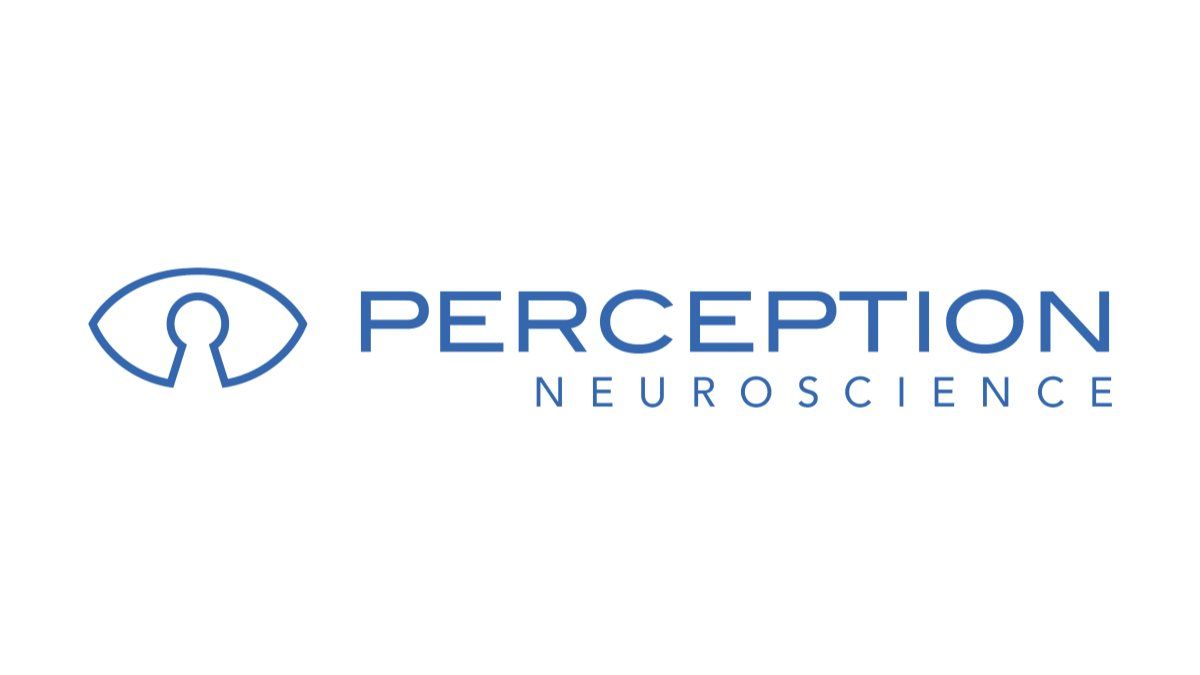预约演示
更新于:2025-07-18
(R)-Ketamine Hydrochloride
盐酸(R)氯胺酮
更新于:2025-07-18
概要
基本信息
原研机构 |
最高研发阶段临床2期 |
首次获批日期- |
最高研发阶段(中国)临床2期 |
特殊审评- |
登录后查看时间轴
关联
15
项与 盐酸(R)氯胺酮 相关的临床试验CTR20251359
一项评价盐酸(R)-氯胺酮鼻喷雾剂在伴有急性自杀意念或行为的抑郁症患者中的有效性、安全性和药代动力学特征的随机、双盲、安慰剂对照的Ⅱ期临床试验
主要目的:评估盐酸(R)-氯胺酮鼻喷雾剂治疗伴有急性自杀意念或行为的抑郁症患者的有效性。
次要目的:评估盐酸(R)-氯胺酮鼻喷雾剂在伴有急性自杀意念或行为的抑郁症患者中多次给药的安全性和药代动力学(PK)特征。
开始日期2025-05-26 |
申办/合作机构 |
CTR20250133
评估盐酸(R)氯胺酮鼻用喷雾剂在难治性抑郁症患者中的有效性和安全性的多中心、随机、双盲、安慰剂对照的II期临床研究
主要目的:探索不同给药剂量的盐酸(R)氯胺酮鼻用喷雾剂治疗难治性抑郁症(TRD)的有效性。
次要目的:评估在TRD患者中多次经鼻给予不同剂量的盐酸(R)氯胺酮鼻用喷雾剂,连续4周的安全性和耐受性;评估在TRD患者中多次经鼻给予不同剂量的盐酸(R)氯胺酮鼻用喷雾剂,连续4周的药代动力学特性。
开始日期2025-02-27 |
申办/合作机构 |
CTR20242441
盐酸(R)-氯胺酮鼻喷雾剂在健康受试者中单次给药的安全性、耐受性及药代动力学研究
主要目的:评估盐酸(R)-氯胺酮鼻喷雾剂在健康受试者中单次给药的安全性和耐受性。
次要目的:评估盐酸(R)-氯胺酮鼻喷雾剂单次鼻喷给药在健康受试者中的药代动力学特征。
开始日期2024-08-05 |
申办/合作机构 |
100 项与 盐酸(R)氯胺酮 相关的临床结果
登录后查看更多信息
100 项与 盐酸(R)氯胺酮 相关的转化医学
登录后查看更多信息
100 项与 盐酸(R)氯胺酮 相关的专利(医药)
登录后查看更多信息
251
项与 盐酸(R)氯胺酮 相关的文献(医药)2025-08-01·JOURNAL OF PHARMACEUTICAL AND BIOMEDICAL ANALYSIS
Chiral analysis of ketamine enantiomers in human urine and hair: Application to authentic cases of ketamine use
Article
作者: Wu, Hejian ; Zhou, Liying ; Zhang, Zhen ; Wang, Xin ; Lin, Meiting ; Xiang, Ping ; Shi, Yan
Ketamine, which possesses important anesthesia and antidepressant properties, has been used clinically in its racemate form. In the 1990s, the single enantiomer S-ketamine began to be used for clinical use. In 2019, an antidepressant S-ketamine hydrochloride nasal spray hit the market. Therefore, a method for chiral analysis of ketamine is particularly important, as this could reveal the types of drugs taken by individuals. An ultra-high-performance liquid chromatography-tandem mass spectrometry (UHPLC-MS/MS) method was established for the separation of chiral ketamine in human urine and hair in this study. Urine (50 μL) was diluted in 950 μL of methanol. Approximately 20 mg of hair was extracted in methanol by cryogenic grinding. The method was applied to authentic urine, blood, and 45 hair samples. Following the deceased's use of esketamine prior to death, only S-ketamine was found in the blood and urine, suggesting that ketamine does not undergo enantiomeric inversion in vivo. The ratio of R-ketamine to S-ketamine in 45 hair samples from ketamine abusers ranged from 0.809 to 1.43, indicating that the ketamine available on the illegal drug market was predominantly in its racemate form. Furthermore, a significant difference (P = 0.039) was observed in the enantiomeric ratio of ketamine between hair samples from ketamine abusers in China and Myanmar. The enantiomeric ratios found in ketamine sourced from various origins are potentially attributable to region variations and distinct synthetic routes. These findings provide a basis for analyzing ketamine enantiomers.
2025-08-01·PSYCHIATRY RESEARCH
Lessons learned from the regulatory alignment in ketamine, esketamine and arketamine clinical trials: A cross-sectional analysis of protocols from ClinicalTrials.gov
Article
作者: Szarpak, Lukasz ; Kwaśny, Aleksander ; Pruc, Michal ; Swieczkowski, Damian ; Sadko, Krzysztof ; Cubała, Wiesław Jerzy ; Gaca, Zuzanna
Ketamine and its enantiomers, esketamine and arketamine, have emerged as promising treatments for treatment-resistant depression (TRD). This cross-sectional study evaluates the regulatory alignment of 40 clinical trials listed on ClinicalTrials.gov, focusing on the methodological challenges. The study highlights methodological inconsistencies, particularly around the challenges of functional unblinding caused by ketamine's dissociative effects, addressing expectancy bias, and the inadequate safety monitoring practices in many trials. A notable concern is the variability in blinding techniques, with many trials failing to adequately mask the perceptual effects of ketamine, potentially compromising outcome assessments. Furthermore, the placebo response, which accounts for a significant portion of treatment effects, was not consistently managed across trials, and safety strategies, particularly for monitoring adverse events such as dissociation and abuse potential, were not uniformly robust. Another critical issue is the lack of long-term follow-up in most trials, limiting the understanding of ketamine's safety profile over extended periods. The findings emphasize the need for harmonized and rigorous methodological frameworks to support the effective use of ketamine and its enantiomers in clinical practice. The potential lessons learned from these trials could be instrumental in guiding future research on other psychedelics currently under investigation for mental health disorders, such as psilocybin and DMT, ensuring both efficacy and safety in future therapeutic approaches. Such harmonization will be crucial to improve regulatory approval and achieve therapeutic success in real-world applications, making these treatments more accessible and reliable for patients with TRD.
2025-07-11·Science Advances
Microglial BDNF modulates arketamine’s antidepressant-like effects through cortico-accumbal pathways
Article
作者: Yang, Chun ; Jiang, Nan ; Hashimoto, Kenji ; Chen, Yueyue ; Wang, Xuenan ; Luo, Shilin ; Yao, Wei ; Yan, Yu ; He, Lujuan ; Xie, Min ; Zhang, Ji-chun
Arketamine, the (
R
)-enantiomer of (
R,S
)-ketamine, shows even greater rapid and sustained antidepressant-like effects in rodent models compared to esketamine, yet the underlying mechanisms remain unclear. In this study, we used the chronic social defeat stress (CSDS) model to investigate how arketamine exerts its antidepressant-like effects. We found that activating cAMP response element–binding protein (CREB) at S133 and methyl-CpG–binding protein 2 (MeCP2) at S421 drives the transcription of brain-derived neurotrophic factor (BDNF), contributing to arketamine’s antidepressant-like effects. Furthermore, microglia-derived BDNF enhances excitatory synaptic transmission in the infralimbic (IL) region of the medial prefrontal cortex (mPFC), mediating the antidepressant-like effects of arketamine in CSDS-susceptible mice. Last, microglia-derived BDNF can activate mPFC (IL) neurons projecting to the nucleus accumbens (NAc) shell, contributing to arketamine’s antidepressant-like effects. These findings highlight the essential role of microglial BDNF in modulating NAc-projecting mPFC neurons, which contribute to the antidepressant-like effects of arketamine.
34
项与 盐酸(R)氯胺酮 相关的新闻(医药)2024-04-28
·赛柏蓝
编者按:本文来自米内网,作者可颂;赛柏蓝授权转载,编辑凯西2023年重点省市公立医院抗抑郁药市场继续承压,产品TOP20中独家品种暴涨615%,品牌TOP20中“一哥”易主。01抗抑郁药“一哥”易主独家品种暴涨615%抑郁症已成为全球第四大疾病,目前我国患抑郁症人数已有9500万。抗抑郁药在重点省市公立医院终端2013-2020年销售额持续实现正增长;随后受集采及疫情影响,2021年、2022年销售额大幅下滑6.22%、16.05%;2023年销售额同比增长11.37%,尚未恢复至历史高位。抗抑郁药产品TOP20中,草酸艾司西酞普兰片自2014年以来持续稳居榜首,阿戈美拉汀片连续三年位列第二,盐酸舍曲林片位列第三;盐酸曲唑酮片、马来酸氟伏沙明片分别位列第四、第五。其中,3个品种阿戈美拉汀片、马来酸氟伏沙明片、盐酸曲唑酮片只有1款或2款仿制药获批上市,竞争相对较小。重点省市公立医院终端抗抑郁药产品TOP20从销售额变化上看,第八批集采品种米氮平片下跌31.43%、第九批集采品种盐酸帕罗西汀肠溶缓释片下跌25.18%,第一批集采品种草酸艾司西酞普兰片下滑4.5%,其余17个产品均有不同程度的增长。12个产品销售额涨逾10%,盐酸曲唑酮缓释片暴涨614.73%,国内仅原研进口产品上市;盐酸米那普仑片暴涨492.11%,国内获批仿制企业有现代制药、科瑞德;盐酸米安色林片大涨58.22%,国内仅有仁和堂的仿制药上市。抗抑郁药品牌TOP20中,豪森药业的阿戈美拉汀片首次登顶榜首,新晋抗抑郁药“一哥”,销售额超过2亿元;灵北的草酸艾司西酞普兰片、辉瑞的盐酸舍曲林片分别位列第二、第三,销售额均超过1亿元。从上榜企业来看,灵北、辉瑞、华海药业都有2个品牌上榜。重点省市公立医院终端抗抑郁药品牌TOP20025亿大品种国产第2家来了2大品种备战第十批集采4月23日,NMPA官网显示,桂林华信制药的马来酸氟伏沙明片获批生产并视同过评,为国产第2家。氟伏沙明是一种选择性5-羟色胺(5-HT)再摄取抑制剂(SSRI),是国家医保目录乙类品种。中国三大终端六大市场氟伏沙明销售情况(单位:万元)此前在国内市场,马来酸氟伏沙明片仅有原研厂家雅培和首仿企业丽珠集团获批上市。近年来马来酸氟伏沙明片国内市场持续增长,2022年在中国三大终端六大市场销售额接近5亿元。截至目前,抗抑郁药已有26个品种通过或视同通过一致性评价。其中,复星医药(含重庆药友、洞庭药业)以6个过评品种领跑,康弘药业、华海药业均有4个品种过评,科伦药业、石药集团、福元医药、上海医药等4家企业均有3个品种过评。抗抑郁药过评情况在已落地执行的八批化药集采中,抗抑郁药合计有9个通用名药品被纳入,其中7个为口服常释剂型,2个为缓释控释剂型。抗抑郁药国家集采情况除去已纳入国家集采的品种,目前抗抑郁药还有2个品种满足集采门槛,符合申报资格企业数均超过5家,具体为伏硫西汀口服常释剂型、安非他酮缓释控释剂型。备受关注的氢溴酸伏硫西汀片已有10家企业过评,包括正大天晴、豪森药业、石药集团、倍特药业、扬子江药业、康弘药业、辰欣药业等。2022年中国三大终端六大市场伏硫西汀销售额超过1.8亿元。氢溴酸伏硫西汀片原为第八批拟集采品种,后在正式目录中被剔除,会否纳入第十批集采值得关注。而随着时间的推进,该品种竞争将愈发激烈。03恩华、康弘、豪森进攻抗抑郁1类新药4月2日,恩华药业公告称,1类新药NH103草酸盐片获批临床,用于治疗抑郁症。NH103对常用抗抑郁靶点5-羟色胺转运蛋白(SERT)和抗抑郁活性增效靶点5HT2A/5HT2C受体均有较强且均衡的抑制活性,作用机制独特,目前暂无相同机制的抗抑郁药上市。今年以来,国内仅有2款抗抑郁化药新药获批临床,具体为恩华药业的1类新药NH103草酸盐片、普锐特药业的2类改良型新药盐酸(R)-氯胺酮鼻喷雾剂。在过去的2023年,国内共有7款抗抑郁化药1类新药获批临床。其中,康弘药业的KH607片、豪森药业的HS-10506片、迈诺威的MI078胶囊、致根医药的ZG-001胶囊、南通和风连旺的LV232胶囊均已启动Ⅰ期临床试验。2023年至今国内获批临床的抗抑郁化药1类新药针对抑郁症,恩华药业创新管线已布局了3款抗抑郁化药1类新药。其中,NH102盐酸盐片已经完成Ⅰ期临床,准备开展Ⅱ期临床;NH103草酸盐片已获批临床;NH104处于临床前研究阶段,用于失眠及抑郁辅助治疗。康弘药业的KH607片是一款小分子r-氨基丁酸A亚型(GABAA)受体正向变构调节剂,有望克服目前一线抗抑郁药起效慢且服用周期长的缺点。目前,康弘药业抗抑郁产品线已有盐酸文拉法辛缓释片、氢溴酸伏硫西汀片、草酸艾司西酞普兰片等仿制药,以及中药独家品种舒肝解郁胶囊获批上市。END内容沟通:13810174402医药代表交流群扫描下方二维码加入银发经济市场机遇交流群扫描下方二维码加入左下角「关注账号」,右下角「在看」,防止失联
一致性评价上市批准带量采购
2024-04-26
·米内网
精彩内容近日,华信制药的马来酸氟伏沙明片获批上市,为国产第2家。米内网数据显示,受集采影响,2023年重点省市公立医院抗抑郁药市场继续承压,产品TOP20中独家品种暴涨615%,品牌TOP20中“一哥”易主。26个抗抑郁药已有企业过评,复星领跑过评榜;9个通用名药品已纳入国采,2个品种备战第十批集采;恩华、康弘、豪森进攻抗抑郁1类新药。抗抑郁药“一哥”易主!独家品种暴涨615%抑郁症已成为全球第四大疾病,目前我国患抑郁症人数已有9500万。米内网数据显示,抗抑郁药在重点省市公立医院终端2013-2020年销售额持续实现正增长;随后受集采及疫情影响,2021年、2022年销售额大幅下滑6.22%、16.05%;2023年销售额同比增长11.37%,尚未恢复至历史高位。抗抑郁药产品TOP20中,草酸艾司西酞普兰片自2014年以来持续稳居榜首,阿戈美拉汀片连续三年位列第二,盐酸舍曲林片位列第三;盐酸曲唑酮片、马来酸氟伏沙明片分别位列第四、第五。其中,3个品种阿戈美拉汀片、马来酸氟伏沙明片、盐酸曲唑酮片只有1款或2款仿制药获批上市,竞争相对较小。重点省市公立医院终端抗抑郁药产品TOP20来源:米内网重点省市公立医院药品终端竞争格局从销售额变化上看,第八批集采品种米氮平片大跌31.43%、第九批集采品种盐酸帕罗西汀肠溶缓释片大跌25.18%,第一批集采品种草酸艾司西酞普兰片下滑4.5%,其余17个产品均有不同程度的增长。12个产品销售额涨逾10%,盐酸曲唑酮缓释片暴涨614.73%,国内仅原研进口产品上市;盐酸米那普仑片暴涨492.11%,国内获批仿制企业有现代制药、科瑞德;盐酸米安色林片大涨58.22%,国内仅有仁和堂的仿制药上市。抗抑郁药品牌TOP20中,豪森药业的阿戈美拉汀片首次登顶榜首,新晋抗抑郁药“一哥”,销售额超过2亿元;灵北的草酸艾司西酞普兰片、辉瑞的盐酸舍曲林片分别位列第二、第三,销售额均超过1亿元。从上榜企业来看,灵北、辉瑞、华海药业都有2个品牌上榜。重点省市公立医院终端抗抑郁药品牌TOP20来源:米内网重点省市公立医院药品终端竞争格局5亿大品种国产第2家来了!2大品种备战第十批集采4月23日,NMPA官网显示,桂林华信制药的马来酸氟伏沙明片获批生产并视同过评,为国产第2家。氟伏沙明是一种选择性5-羟色胺(5-HT)再摄取抑制剂(SSRI),是国家医保目录乙类品种。中国三大终端六大市场氟伏沙明销售情况(单位:万元)来源:米内网格局数据库此前在国内市场,马来酸氟伏沙明片仅有原研厂家雅培和首仿企业丽珠集团获批上市。米内网数据显示,近年来马来酸氟伏沙明片国内市场持续增长,2022年在中国三大终端六大市场(统计范围详见本文末)销售额接近5亿元。截至目前,抗抑郁药已有26个品种通过或视同通过一致性评价。其中,复星医药(含重庆药友、洞庭药业)以6个过评品种领跑,康弘药业、华海药业均有4个品种过评,科伦药业、石药集团、福元医药、上海医药等4家企业均有3个品种过评。抗抑郁药过评情况在已落地执行的八批化药集采中,抗抑郁药合计有9个通用名药品被纳入,其中7个为口服常释剂型,2个为缓释控释剂型。抗抑郁药国家集采情况除去已纳入国家集采的品种,目前抗抑郁药还有2个品种满足集采门槛,符合申报资格企业数均超过5家,具体为伏硫西汀口服常释剂型、安非他酮缓释控释剂型。备受关注的氢溴酸伏硫西汀片已有10家企业过评,包括正大天晴、豪森药业、石药集团、倍特药业、扬子江药业、康弘药业、辰欣药业等。米内网数据显示,2022年中国三大终端六大市场伏硫西汀销售额超过1.8亿元。氢溴酸伏硫西汀片原为第八批拟集采品种,后在正式目录中被剔除,会否纳入第十批集采值得关注。而随着时间的拖延,该品种竞争将愈发激烈。恩华、康弘、豪森进攻抗抑郁1类新药4月2日,恩华药业公告称,公司的1类新药NH103草酸盐片获批临床,用于治疗抑郁症。NH103对常用抗抑郁靶点5-羟色胺转运蛋白(SERT)和抗抑郁活性增效靶点5HT2A/5HT2C受体均有较强且均衡的抑制活性,作用机制独特,目前暂无相同机制的抗抑郁药上市。今年以来,国内仅有2款抗抑郁化药新药获批临床,具体为恩华药业的1类新药NH103草酸盐片、普锐特药业的2类改良型新药盐酸(R)-氯胺酮鼻喷雾剂。在过去的2023年,国内共有7款抗抑郁化药1类新药获批临床。其中,康弘药业的KH607片、豪森药业的HS-10506片、迈诺威的MI078胶囊、致根医药的ZG-001胶囊、南通和风连旺的LV232胶囊均已启动Ⅰ期临床试验。2023年至今国内获批临床的抗抑郁化药1类新药针对抑郁症,恩华药业创新管线已布局了3款抗抑郁化药1类新药。其中,NH102盐酸盐片已经完成Ⅰ期临床,准备开展Ⅱ期临床;NH103草酸盐片已获批临床;NH104处于临床前研究阶段,用于失眠及抑郁辅助治疗。康弘药业的KH607片是一款小分子r-氨基丁酸A亚型(GABAA)受体正向变构调节剂,有望克服目前一线抗抑郁药起效慢且服用周期长的缺点。目前,康弘药业抗抑郁产品线已有盐酸文拉法辛缓释片、氢溴酸伏硫西汀片、草酸艾司西酞普兰片等仿制药,以及中药独家品种舒肝解郁胶囊获批上市。资料来源:米内网数据库注:米内网《中国三大终端六大市场药品竞争格局》,统计范围是:城市公立医院和县级公立医院、城市社区中心和乡镇卫生院、城市实体药店和网上药店,不含民营医院、私人诊所、村卫生室,不含县乡村药店;米内网重点省市公立医院化学药终端竞争格局数据库是以20+省市,近700家样本省市公立医院的化学药采购数据为基础,对化学药全品类进行连续监测的样本省市样本医院数据库;上述销售额以产品在终端的平均零售价计算。本文为原创稿件,转载请注明来源和作者,否则将追究侵权责任。投稿及报料请发邮件到872470254@qq.com稿件要求详询米内微信首页菜单栏商务及内容合作可联系QQ:412539092【分享、点赞、在看】点一点不失联哦
上市批准带量采购核酸药物申请上市医药出海
2024-02-05
·药智网
近日,倍特药业旗下普锐特药业的新药盐酸(R)-氯胺酮鼻喷雾剂获国家药监局药品审评中心临床试验默示许可,注册分类为2.1、2.2、2.4,适应症为伴有急性自杀意念或行为的抑郁症,以及成人难治性抑郁症。截至目前,盐酸(R)-氯胺酮鼻喷剂进入临床阶段的有3家国内药企,分别为普锐特药业、恩华药业和恒瑞医药,其中,恒瑞医药最早入局,恩华药业和普锐特药业基本同期“杀入”。国产「抗抑郁」鼻喷剂三足鼎立,谁将率先突出重围?01与轻生竞速,要疗效更要快据WHO数据,全球抑郁症患病人群高达3.5亿人,近十年来患者增速为18%,另据《2022年国民抑郁症蓝皮书》统计显示,我国患抑郁症人数约9500万。作为一种常见的精神疾病,抑郁症的创新药研发也一直是药企布局的重点,据不完全统计,近十年来,全球已有8款抑郁症创新药获批。图1 近十年抑郁症获批创新药及销售情况(不完全统计)资料来源:药智数据、各药企财报从市场销售情况来看,获批的抑郁症创新药的市场表现均处于上升通道,且极易成为年销售额过亿美元的重磅产品,即便是获批时间距今较久的Trintellix、Vraylar和Brexpiprazole,在抑郁症药物市场仍有着举足轻重的地位。然而,令人头疼的是,抑郁症复发率高达50%-85%,其中,50%的患者会在疾病发生后的2年内复发。著名歌手李玟在2023年7月轻生,警方称,在其随身物品中发现13粒抗抑郁药,尽管其一直在接受抗抑郁症治疗,但最终无法改变其轻生的结局。与患者轻生竞速,除了疗效,更重要的是快。绿叶制药的盐酸托鲁地文拉法辛是我国首个自主研发用于治疗抑郁症的化学创新药,据3期临床试验数据显示,558例患者随机分配至80mg、160mg和安慰剂组,8周后,80mg组和160mg组的MADRS有效率分别为79.9%和73.9%,MADRS缓解率(MADRS≤12)分别为51.6%和52.2%,尽管疗效不错,但8周的时间对于随时可能有轻生意念的患者来说,并不能快速控制其轻生的念头。Spravato是首个且是唯一被证明可在24小时内减轻抑郁症状的获批药物,由强生旗下杨森制药开发,通过调节谷氨酸系统从而快速缓解抑郁症状,是一种非竞争性NMDA受体拮抗剂。尽管获批适应症为与其他口服药联用,但据3期临床2项研究显示,在24小时内能显著、快速减轻抑郁症状,一些患者在4小时就开始有反应,抑郁评定量表(MADRS)显示在首次给药后24小时的2个试验中分别下降15.9和16.0分。Spravato抗抑郁症的快效优势,让其市场表现突出,2023年销售额达6.89亿美元,同比增长84.22%,中国抑郁症患者占全球的27.14%,国内的获批也将进一步助长其市场的再放量。02与恒瑞竞赛,三足鼎立形成据药智数据企业版查询显示,截至目前,盐酸(R)-氯胺酮鼻喷剂进入临床阶段的有3家国内药企,分别为普锐特药业、恩华药业和恒瑞医药,其中,恒瑞医药最早入局,恩华药业和普锐特药业基本同期“杀入”。图2 国内药企盐酸(R)-氯胺酮鼻喷雾剂临床进展情况资料来源:药智数据、各药企公告恒瑞医药作为最早瞄向盐酸(R)-氯胺酮鼻喷剂的药企,近4年过去,临床进展依然停留在1期阶段,这或许与恒瑞医药近年来不断的创新转型布局调整有关。笔者预计,恒瑞医药将重新关注盐酸(R)-氯胺酮鼻喷剂,毕竟在获批临床之时,恒瑞医药已投入了1386万的研发费用。恩华药业作为第二家入局的药企,实力也不容小觑。其是国家定点麻醉类和精神类药品生产基地,且是国内中枢神经领域药物品种最多、品规最全的药企。据其2023半年报显示,恩华药业已获批上市的精神类药物(按品规计)多达11款,其中7款在竞争格局中均处于领先/领导地位,且碳酸锂缓释片为独家,对反复发作的抑郁症也有预防发作作用。图3 恩华药业精神类上市产品情况图片来源:恩华药业2023半年报在精神类药物有着“王者”地位的恩华药业,势必不会放过盐酸(R)-氯胺酮鼻喷剂的机会,必定会加快研发进度,力争抢先占领市场。前有猛虎,后有追兵,倍特药业如何突出重围?03吸入药技术占优,来得晚但不惧倍特药业在精神类药物领域虽不及恩华药业,但也小有成就。据其官网显示,已上市的3款精神类药物中,均为抗抑郁类药物,分别为盐酸度洛西汀肠溶胶囊、盐酸文拉法辛胶囊和氟哌噻吨美利曲辛胶囊。图4 倍特药业精神类上市产品图片来源:倍特药业官网值得一提的是,恩华药业也有盐酸度洛西汀肠溶胶囊,而恒瑞医药也有盐酸文拉法辛胶囊,但2家药企市场竞争力均不如倍特药业,据药智数据企业版医院销售数据显示,倍特药业的盐酸度洛西汀肠溶胶囊和盐酸文拉法辛胶囊,2023上半年销售额均实现同比增长,成为众多拥有该2款产品中唯一实现正增长的药企。产品虽少,但在同类产品中竞争力较强的倍特药业,在精神类药物领域中也积累了较强的市场经验,更让其占优的是,旗下普锐特药业是专注于经口吸入肺部递送和鼻腔递送药物的企业,已成功上市吸入用硫酸沙丁胺醇溶液、吸入用异丙托溴铵溶液、吸入用复方异丙托溴铵溶液、吸入用布地奈德混悬液、硫酸特布他林雾化吸入用溶液、盐酸左沙丁胺醇雾化吸入溶液6款产品。在吸入/鼻腔递送技术方面有着优势的普锐特药业,对盐酸(R)-氯胺酮鼻喷剂的研发可以说是手到擒来,此外,普锐特药业在该药的研发策略上,特意增加了伴有急性自杀意念或行为抑郁症的适应症,市场定位更精准。04结语暂且不论上述3家药企谁先出圈,任何一家药企产品获批,都将打破强生Spravato对国内抑郁症快效药物的垄断,这不仅将是国产2类改良型新药的又一突破,更是国内抑郁症患者群体的福音。参考来源:1.德邦证券2.相关药企官网、公告、半年报及年报声明:本内容仅用作医药行业信息传播,为作者独立观点,不代表药智网立场。如需转载,请务必注明文章作者和来源。对本文有异议或投诉,请联系maxuelian@yaozh.com。责任编辑 | 紫色转载开白 | 马老师 18996384680(同微信)商务合作 | 张武龙 13368443108(同微信) 阅读原文,是昨天最受欢迎的文章哦
财报临床3期申请上市优先审批
100 项与 盐酸(R)氯胺酮 相关的药物交易
登录后查看更多信息
研发状态
10 条进展最快的记录, 后查看更多信息
登录
| 适应症 | 最高研发状态 | 国家/地区 | 公司 | 日期 |
|---|---|---|---|---|
| 抑郁症 | 临床2期 | 中国 | 2025-03-12 | |
| 难治性抑郁症 | 临床2期 | 美国 | 2022-02-01 | |
| 难治性抑郁症 | 临床2期 | 德国 | 2022-02-01 | |
| 难治性抑郁症 | 临床2期 | 波兰 | 2022-02-01 |
登录后查看更多信息
临床结果
临床结果
适应症
分期
评价
查看全部结果
| 研究 | 分期 | 人群特征 | 评价人数 | 分组 | 结果 | 评价 | 发布日期 |
|---|
No Data | |||||||
登录后查看更多信息
转化医学
使用我们的转化医学数据加速您的研究。
登录
或

药物交易
使用我们的药物交易数据加速您的研究。
登录
或

核心专利
使用我们的核心专利数据促进您的研究。
登录
或

临床分析
紧跟全球注册中心的最新临床试验。
登录
或

批准
利用最新的监管批准信息加速您的研究。
登录
或

特殊审评
只需点击几下即可了解关键药物信息。
登录
或

Eureka LS:
全新生物医药AI Agent 覆盖科研全链路,让突破性发现快人一步
立即开始免费试用!
智慧芽新药情报库是智慧芽专为生命科学人士构建的基于AI的创新药情报平台,助您全方位提升您的研发与决策效率。
立即开始数据试用!
智慧芽新药库数据也通过智慧芽数据服务平台,以API或者数据包形式对外开放,助您更加充分利用智慧芽新药情报信息。
生物序列数据库
生物药研发创新
免费使用
化学结构数据库
小分子化药研发创新
免费使用





